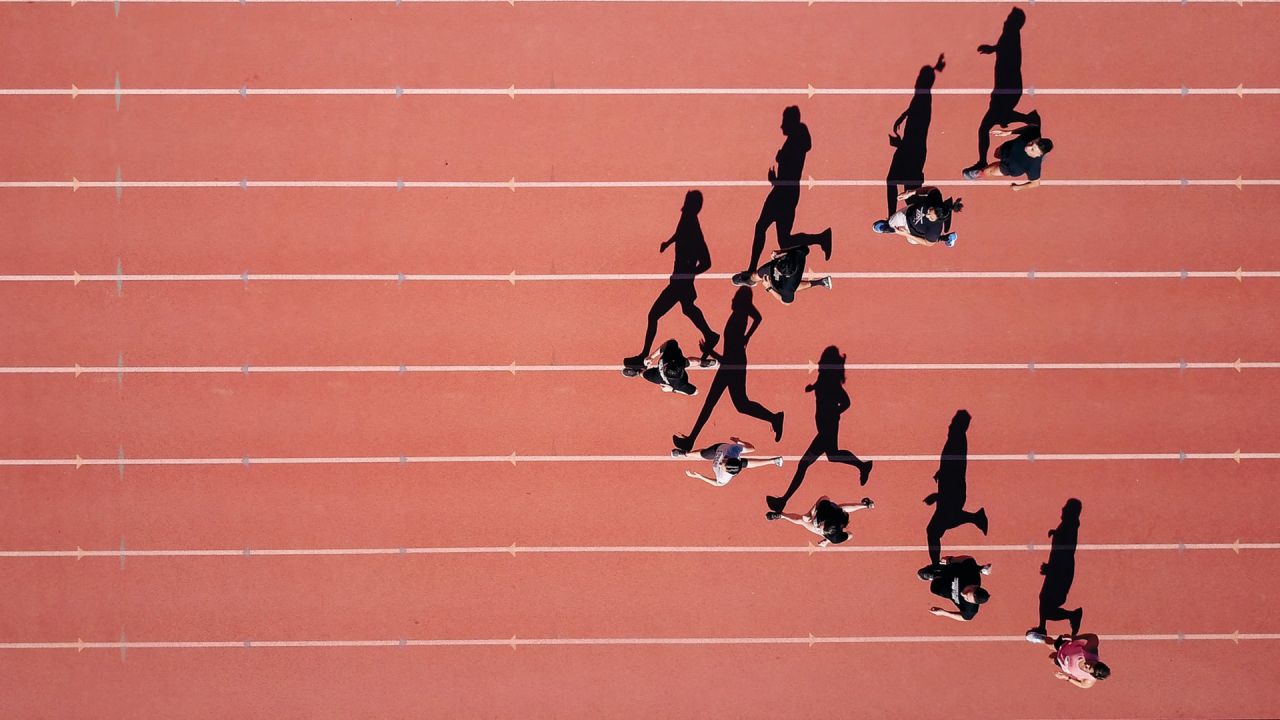We did a tally the other day and worked out that one way or another, between us at Red Bee, we’d worked on every Olympic Games since 1984 in Los Angeles. Summer and Winter. (Watch out for some CNBC spots for Tokyo 2021!)
Which means we have, in equal measure, envy and sympathy for brands and broadcasters charged with finding a fresh new take on the creative challenge. Naturally, the advantage over, say, Wimbledon, or The Masters, is that there is at least a change in host venue and so, unsurprisingly, that is the creative hook that most steer towards.
This year the standout take on Tokyo comes from BBC Creative. Its collaboration with Nexus has produced a strikingly original piece of work, chockfull of Easter eggs for fans of Japanese culture, and a refreshing change from some other brands who have taken a more well-trodden approach up Mount Fuji.
Clearly this is a uniquely difficult year to manage the other key requirement of sports advertising, which is keeping a sharp ear on fan mood. Toyota has responded in Japan by pulling all its TV advertising, and other brands will be watching the daily Covid isolation news from the athletes’ village hoping that their figureheads make it to the starting line.
The absence of any attendance by fans at the Games has created a strange mood reviewing the work of broadcasters and brands. Most have tried to tackle it in the media world, by reminding viewers that they can always ‘be there’ through their screens. (See the BBC “Let’s Go There” endline for starters). Except we all know it’s not actually being there, and at best a deliberate misrepresentation.
Samsung says we can “be there” through our Samsung phones and laptops. They add in the notion of being the “proud sponsor of a world coming together”, which is an optimistic note as we plunge back into isolation, new lockdowns and an ever more divided world. Let’s fervently hope it will be true this year. (In passing, they are one of more than five advertisers we’ve seen to feature Sky Brown…so let’s hope she gets to compete).
Channel 7 in Australia adds some more words onto the claim by asking viewers to “Be There When It Happens”. A ‘route one’ sports promo, athletes praising each other’s prowess to camera, draped in the Aussie flag. Simple and effective but paid off with a slightly limp “you can be there on 7”. Almost as if they had lost confidence in the idea to the point that all spectators were barred from attending.
Surely there is a way of saying ‘witness these moments’ without suggesting actual attendance?
CBC in Canada tackles it by saying “we’ll save you a seat”. Neat. Nice neon branding too. We wonder if the conflation of Tokyo and Beijing is more to do with a lack of potential medal success at the former, which seems like a weird admission for a broadcaster.
Perhaps, the BBC aside, the best work has tended to come from brands who have avoided the lack of crowds or host venue and have focused on the athletes. Whether that is NBC Sports, with a delightfully playful mash-up of Simone Biles and the Minions:
... or Peloton getting around the fact they aren’t an official sponsor with surprising ease. Sure, you can train with elite athletes - in disciplines that are also Olympic events – but that’s more of a coincidence than anything else.
Or indeed 4Creative’s masterful “Super. Human” for the Paralympics. Finding a new and emotional route into the individual journeys and pressures, combined with their customary crafted-to-perfection filmmaking. It is long, but rewarding, and offers wonderful variety within.
The same can’t really be said of the IOC’s “Stronger Together”. When there is so much to say, is it powerful to say everything? When claims become a lengthy list you lose the emotional hold over an audience. We’ve all done it when faced with such rich stories to tell, but maybe less would be more.
Then we reach Nike’s “Best Day Ever”. Athlete-focused, but with a nice twist to athletes of the future. Really fresh, really fun. (But are they really telling us that major sports sponsors would be happy for their athletes to stop doing press conferences?)
Finally, we can’t comment on Olympic campaigns without a mention of Purple Bricks for a sponsorship campaign that is such a pale imitation of our own for Nissan in 2016 that it should not be on any podium.
Overall, despite not being able to be there, we will be on the sofa for every second of it. After all, our offices are on the finish line of the 1908 Games, so we guess it’s in our DNA.
Charlie Mawer, Exec Creative Director

